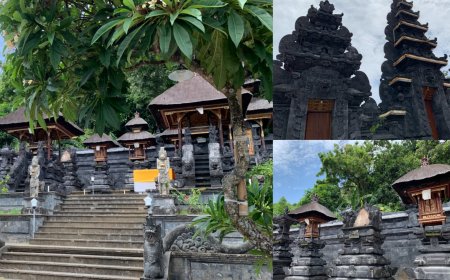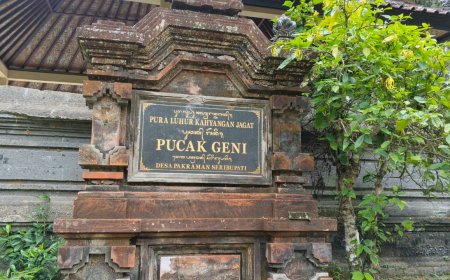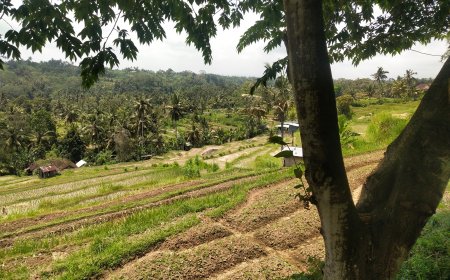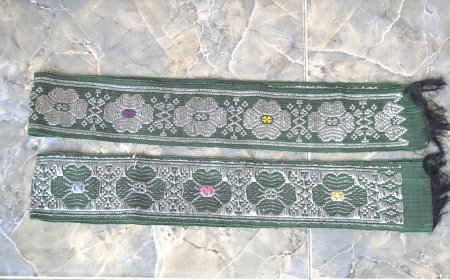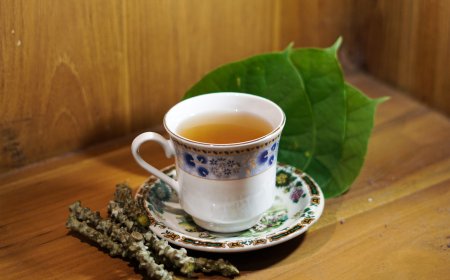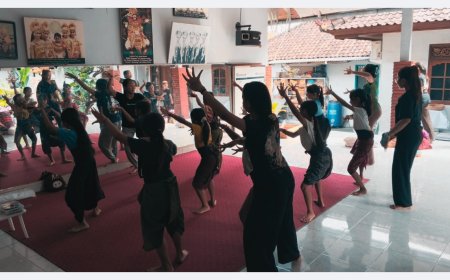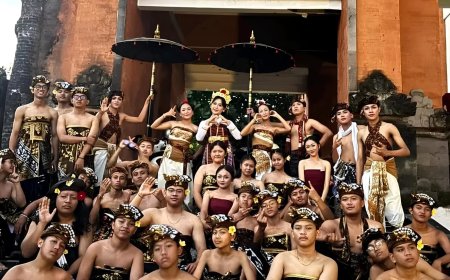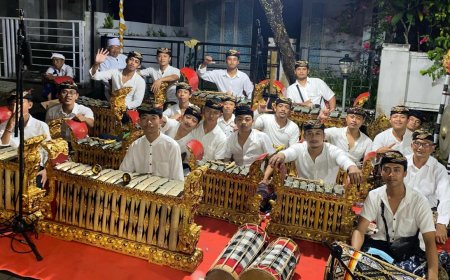Sanggar Lokananta: Nurturing the Soul of Art from the Land of Singapadu
Sanggar Lokananta, established in Singapadu Village in 2001, was born from the determination of I Wayan Sutirtha, S.Sn., M.Sn., to cultivate the arts. Here, children gradually learn dance and gamelan with a structured weekend practice schedule. From performing ngayah in the village to appearing at the Bali Arts Festival, Lokananta has become a living space for the artistic spirit of the younger generation.
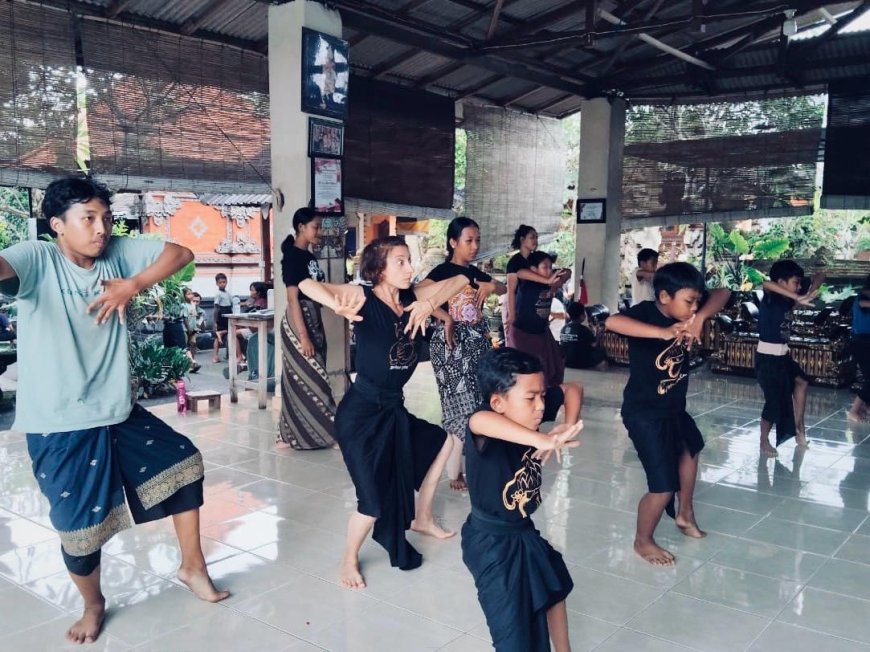
Background and History
Amid the serene atmosphere of Singapadu Village, there stands an art studio located in Br. Mukti, Singapadu Village, Sukawati District, Gianyar Regency, which since the early 2000s has become a place for children to channel their talents while fostering a love for Balinese arts and culture. This studio, Sanggar Lokananta, was founded on January 24, 2001, by I Wayan Sutirtha, S.Sn., M.Sn., a lecturer at ISI Denpasar and a dance artist who never tires of sharing his knowledge.
Founder of Sanggar Lokananta (Source: Personal Collection)
For I Wayan Sutirtha, establishing the studio was not merely a hobby, but a calling. Since his college years at ISI Denpasar, he had been taught not to rely solely on formal jobs but to dare to be independent with his own skills. From that spirit arose his determination to create a learning space where children could create, while also addressing the needs of the Singapadu community, which is rich in religious and artistic activities.
At first, Sanggar Lokananta only focused on dance. However, over time, I Wayan Sutirtha realized that dance and gamelan are like two legs that must walk together. “With only one leg, we cannot go far,” he described. Thus, in the past five years, the studio began developing gamelan lessons. Now, children not only learn to dance but also to play gamelan, allowing the studio to be independent during ngayah without relying on outside gamelan groups.
Step-by-Step Learning System
The learning system at Sanggar Lokananta is structured step by step. For female students, the journey begins with basic techniques and Tari Pendet, followed by Tari Condong and Kupu-Kupu, then moving to the intermediate level with dances such as Margapati or Wiranata. At the advanced level, they are taught creative dances like Manukrawa, Cendrawasih, and Trunajaya. Meanwhile, male students follow a similar pattern, starting with Tari Wirayuda and Baris at the beginner stage, then progressing to Jauk Keras, Topeng, and Jauk Manis at the advanced level. Interestingly, group dances are rarely taught to boys due to frequent dropouts, so they focus more on challenging solo dances.
Gamelan for Gamelan Practice (Source: Personal Collection)
Gamelan is also taught progressively, starting from basic patterns to accompaniment for dances. Although it has only been implemented in recent years, the enthusiasm of the children to learn gamelan is remarkable, gradually producing young players ready to serve in the community and perform outside.
Well-Organized Practice Schedule
Practice at Sanggar Lokananta always takes place on weekends with neatly arranged schedules to avoid overlaps. Friday afternoons, from around three to half-past five, are dedicated to boys’ dance training. On Saturdays, the studio becomes livelier, with girls’ dance practice from two to six in the evening, followed by gamelan practice from six to eight at night. Sundays are the busiest, starting at eight in the morning with gamelan practice, boys’ dance at ten until noon, and girls’ dance again from two to six in the afternoon. Sundays are the most vibrant, with almost all members gathering.
The choice of these three practice days is deliberate: Friday eases into the weekend, while Saturday and Sunday are school holidays, ensuring children can practice without extra burdens. This schedule also prevents clashes since the studio only has one practice space.
Achievements and Participation in Major Events
Sanggar Lokananta is not only active in Singapadu Village but also frequently performs at prestigious events. Every year, they participate in the Bali Arts Festival (PKB) at both the regency and provincial levels. At PKB 2023, the children performed Tari Janger Klasik, while in PKB 2025 they presented Tari Pendet with 30 dancers at the opening and Tari Baris with 30 dancers at the closing. In 2017, they were even invited to Surabaya to perform Tari Trunajaya.
Uniqueness of Sanggar Lokananta
The uniqueness of Sanggar Lokananta lies in its once-a-year level promotion system. Unlike other studios that hold it every six months, Lokananta allows more time for children to fully master their skills before moving up. Moreover, this studio chooses Tari Pendet as the foundational dance instead of Tari Puspanjali, considering that Pendet is more suitable for beginners.
Challenges Faced
The journey of the studio is not without challenges. Funding is the main issue, as almost all expenses, including gamelan purchases, come from the studio’s own funds. Another challenge is guiding children: transforming those who initially cannot dance into skilled performers, building discipline, and reducing their excessive gadget use. The studio also encounters children who lack interest but are pushed by their parents. Patience and strategy are essential to ensure every child can learn with joy.
Sanggar Lokananta Singapadu (Source: Personal Collection)
Enrollment and Hopes
Enrollment at Sanggar Lokananta is flexible, without specific time limits. Children can join anytime, usually after parents contact the studio via phone or social media. According to I Wayan Sutirtha, this is important because the enthusiasm for learning art often comes from a child’s “mood,” so it should not be restricted to certain periods.
The studio carries big hopes for the future. Beyond continuously nurturing young generations for ngayah, Sanggar Lokananta also aims to professionally manage costume rentals to support operational costs. They already have many costumes, but they are not yet fully optimized. This step is expected to make the studio more independent, eliminating the need to rent costumes for performances.
Art and Environmental Awareness
Interestingly, Sanggar Lokananta not only teaches art but also instills environmental awareness. Every year, during the studio’s anniversary, children are invited to participate in beach clean-ups and collect plastic waste. This activity, regularly in collaboration with Yayasan Bumi Kita, serves as an educational effort to cultivate love for nature from an early age.
For more than two decades, Sanggar Lokananta has been home to thousands of children learning to dance and play gamelan. From Singapadu, they carry the spirit of preserving Balinese art and culture, proving that art is not only about body movements and gamelan sounds, but also about building character, togetherness, and love for the homeland.



